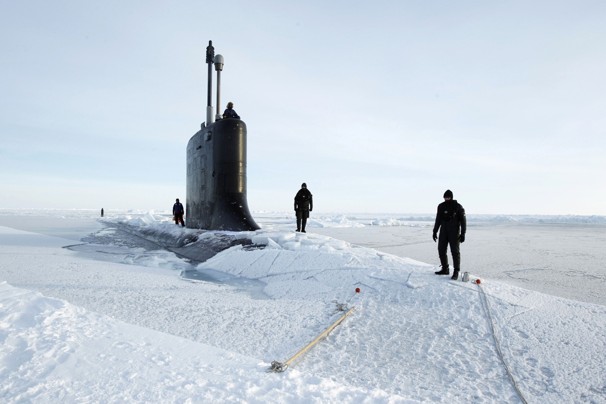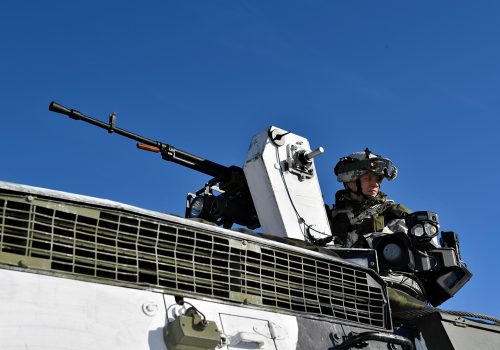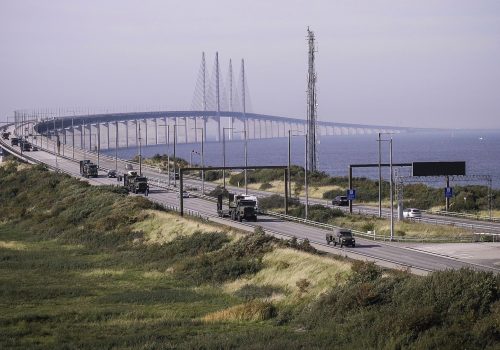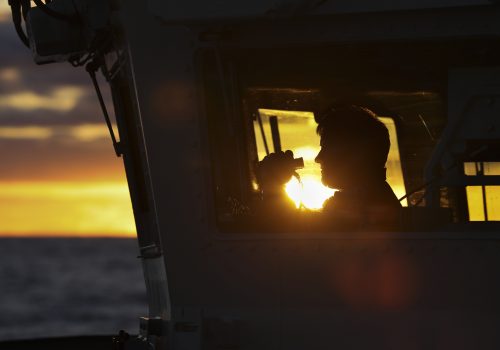“The Arctic is changing, but our objectives remain the same: to secure peace and stability,” Norwegian Ambassador to the United States Kare R. Aas said on February 6. During keynote address opening the Atlantic Council’s “Looking North: Conference on Security in the Arctic,” Aas laid out Norway’s approach to the Arctic, noting that it takes its role as an Arctic state seriously.
The conference, hosted at Ambassador Aas’s residence and produced in partnership with the Royal Norwegian Ministry of Defense, featured experts from both sides of the Atlantic to discuss how the changes taking place in the Arctic region are affecting the transatlantic community’s is approach to the region.
Aas dispelled myths that the Arctic exists in a legal vacuum. “Some argue that the Arctic is a no-man’s-land, others see it as an arena for a Great Game—neither are true…the region is not up for grabs.” He went on to explain that there are numerous legal frameworks in place governing the region including the Law of the Sea, and that the Arctic Council exists as a regional institution framework to strengthen regional stability. The ambassador pointed out, however, that the security challenges in the region are real. As Russia expands its military presence in the Arctic in scale, scope, and complexity, NATO must continue to ensure the stability of the region and provide deterrence to Moscow’s buildup.
Thomas Nilsen, editor at the Independent Barents Observer followed the ambassador with an on-the-ground perspective from Kirkenes, a town on Norway’s border with Russia. Nilsen emphasized the rapid changes taking place in the Arctic due to climate change, noting that the Arctic is warming twice as fast as other parts of the world. This rapid warming has led to increased commercial interest in the Arctic and high north especially around shipping and energy extraction. Nilsen also highlighted the duality of living so close to Russia. On the one hand, cooperation with Moscow is necessary and often welcomed in areas like search and rescue operations, yet at other times Russia goes out of its way to increase uncertainty in the region through live fire exercises and intelligence operations.
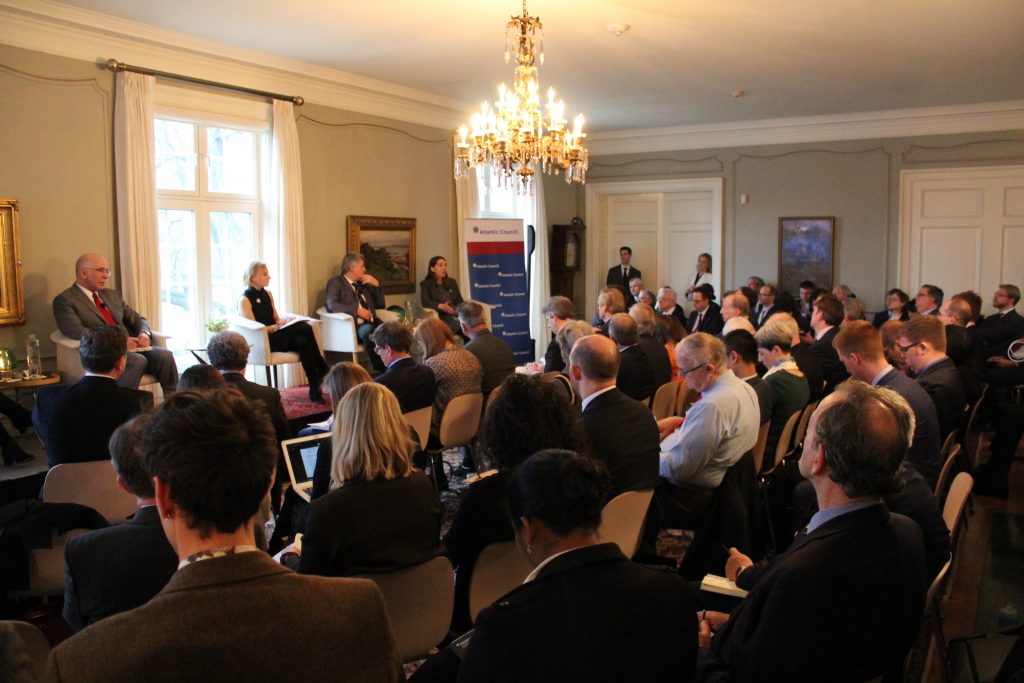
Nilsen continued to share his perspective as part of a panel discussion moderated by PBS NewsHour’s Ali Rogin. He noted that Russia’s increasing military activity in the Arctic should not come as such a surprise, saying “Russia is arming the Arctic not because it’s the Arctic, but because that’s where their ballistic missile sites are. That’s where they have to sail from to access deep water.” Sherri Goodman, board director at the Atlantic Council and senior fellow with the Wilson Center, concurred that the security challenges in the region are great, but hammered home that climate change is serving as a “threat multiplier” in the region. She called on the United States to reassert its leadership on climate and stability issues, saying that “as the United States, it is incumbent upon us to reinforce the legal regime in the Arctic…and create regimes that increase stability and transparency in the region.”
Stephanie Pezard, senior political scientist with the RAND Corporation weighed in on the strategic competition playing out in the Arctic region. She highlighted how both Russian and Chinese activity in the region is often deliberately ambiguous and designed to create uncertainty. David Auerswald looked at the issues from a US perspective, adding that while the Department of Defense’s Arctic Strategy focuses on issues related to Alaska, he views the main threats to US security in the region as potential spillover from a conflict in Europe or the Baltic Sea region, rather than threats to the Alaska itself. According to Auerswald, that necessitates planning capability development that gives the US military the capability “to operate in seas where we have to fight.”
Get more NATO content in your inbox
Sign up for updates from the Atlantic Council’s Transatlantic Security Initiative, covering the debate on the greatest security challenges facing the North Atlantic Alliance and its key partners.
The conference’s second panel discussion welcomed officials from several key NATO Allies for a conversation with Ambassador Aas. The senior officials, representing the United States, Canada, Denmark, the United Kingdom, and Norway, balanced the need for cooperation with adversaries on key Arctic issues with the necessity of addressing security concerns. Michael Emerson, senior Arctic policy advisor with the US Coast Guard noted that the Arctic Coast Guard Forum has emerged as a key venue for cooperation and dialogue with Russia. “If the Russians don’t show up to the Arctic Coast Guard Forum, the meeting is canceled; it’s meaningless. We all get along; we’re all committed to collaborate and communicate and being transparent.” Keith Eikenes, deputy director for security policy at the Royal Norwegian Ministry of Defense agreed that cooperation in the Arctic is key but warned that focusing where cooperation exists shouldn’t preclude conversations about security concerns. “I don’t think we are destined for more instability” he said, “we should work tirelessly to maintain…areas of stability and cooperation. But we should not shy away from talking about security. Only by speaking in a frank and responsible way can we maintain that stability.”
The officials noted that above all, cooperation with Allies and through multilateral institutions will be key to maintaining security and stability in the region. Eikenes argued that “NATO being engaged in the Arctic is just as natural as NATO being engaged in the Mediterranean or in Poland.” Henrik Bramsen Hahn, deputy chief of mission at the Danish Embassy in Washington reinforced this, saying “NATO is already in the Arctic…what we support is a focus on the North Atlantic and GIUK (Greenland, Iceland, and United Kingdom) gap.” Martin Loken, minister for political affairs at the Canadian Embassy and Edward Ferguson, minister counsellor, defence at the British Embassy also emphasized their countries’ support for cooperation with Allies on these difficult issues. Said Loken, “We’ll be there with our Allies. We’ll be ready, informed, and united to keep the Arctic an area of peace.”
Connor McPartland is a program assistant in the Scowcroft Center for Strategy and Security’s Transatlantic Security Initiative.
